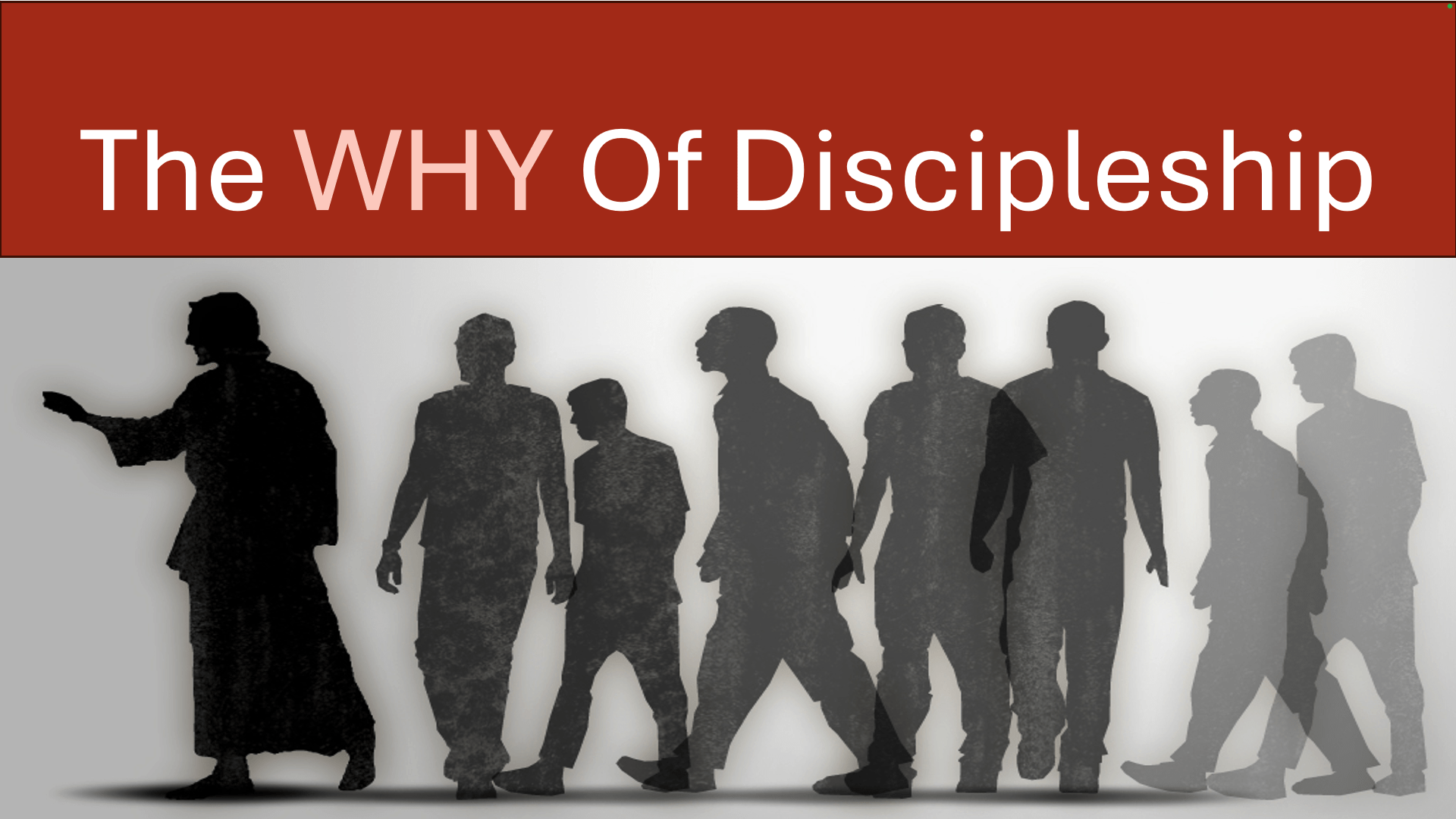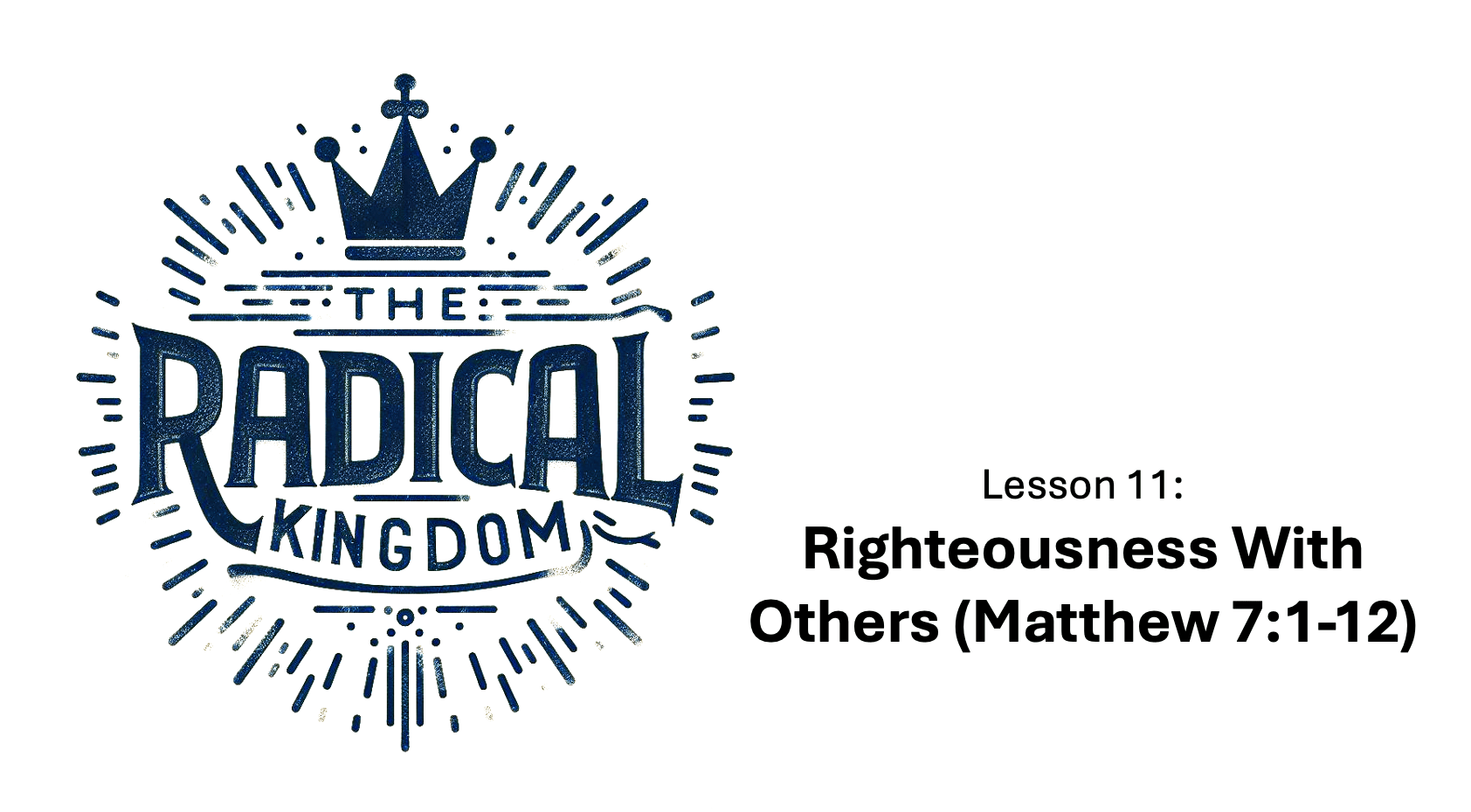Downloadable Files:
Text:
The Radical Kingdom
Lesson 6: Case Studies In Righteousness, Part 2 (Matthew 5:33-48)
The people had been accustomed to hearing parts of God’s law applied in ways that were not descriptive of all that God wanted from them. Now, Jesus uses these statements to demonstrate how true righteousness in God’s kingdom goes beyond ritualism, formalism, and traditionalism and cuts to the heart of being the kind of people who truly honor God. In this lesson, we will look at three additional case studies in righteousness (Matthew 5:33-48).
Case Study #4: Oaths (Matthew 5:33-37)
It was commonly taught that oaths taken in the name of Jehovah God were required to be fulfilled (Leviticus 19:12; Numbers 30:2). However, the Pharisees and scribes made these teachings about the seriousness of oaths taken in the name of God into permission to be dishonest whenever the name of God was not invoked (Matthew 23:16-22). Jesus demonstrates that unrighteousness is not limited to failing to take the oaths made to God seriously. Instead, He says not to make any oaths at all – whether by Heaven, earth, Jerusalem, or your head. Oaths by such things were commonly viewed as nonbinding. So, people felt as though they could take them and then still be right with God if they violated their oath since it did not invoke God’s name. Jesus wants people to make no such oath that is not taken seriously! He reasons that swearing by anything or anyone connects to God and His power. Heaven is God’s throne, earth is His footstool, Jerusalem is His city, and only God can truly change the color of a person’s hair! Jesus’s prohibition on making oaths must, therefore, be considered within this context of how they were being used as permission to deceive, contrary to God’s nature (Titus 1:2; John 17:17) and His will (Proverbs 6:16-19; Ephesians 4:25). True righteousness requires that you mean what you say with every word that is spoken (Matthew 12:33-37)! Even a simple “yes” or “no” must mean what those words convey (James 5:12). Citizens of Jesus’s kingdom need to say nothing special for others to know they are telling the truth. Instead, anything additional that is needed is from the evil one (John 8:44).
Case Study #5: Personal Justice (Matthew 5:38-42)
Jesus’s next task was to address the way God’s Old Testament law concerning personal justice had been abused (Exodus 21:22-25; Leviticus 24:17-22). These principles of justice given to the Jews were meant to deter wickedness and limit the amount of retaliation a person could take on another. Note that this justice was to be carried out only after careful process (Deuteronomy 19:15-21). However, some were apparently using this as permission for an individual to take matters of personal justice into their own hands and retaliate against those who committed evil against them. Jesus demonstrates that this, though, is contrary to the way of righteousness in His kingdom. Jesus forbids resisting an evildoer in the sense of seeking personal justice/retaliation. Rather, citizens of Jesus’s kingdom should demonstrate a spirit that seeks to overcome evil with good and one that does not seek to return evil for evil (Romans 12:17-21)! So, if someone slaps you on the right cheek (believed to be a backhanded slap that served as an insult), allow that one to slap you on the left cheek rather than retaliate evil for evil by returning the blow. A second case is if one sues to take away your shirt (inner garment), let that one have your coat (outer garment) rather than retaliate evil for evil. A third case is if one would force you to go one mile with him (as Roman officials would compel citizens to assist in their work), go a second mile with him rather than retaliate against the abuse of authority evil for evil. This spirit then extends to giving to those who ask and not turning away those who want to borrow, even if they have injured us. However, recognize that the spirit Jesus is teaching is not one that is unable to defend self and others or that must give away everything he/she possesses without question (other Biblical principles would address these scenarios, Acts 9:29-30; 1 Timothy 5:8). Rather, it is the spirit of doing good rather than seeking personal justice and retaliation (1 Peter 2:21-25)!
Case Study #6: Love (Matthew 5:43-48)
Loving one’s neighbor was a widely accepted command that was central to righteousness (Leviticus 19:18; Matthew 19:16-19; 22:34-40; Luke 10:25-28). However, some interpreted and applied this instruction to then hate one’s enemy (perhaps based on a perversion of Deuteronomy 23:3-6). Still, God had directly taught the Israelites to treat their enemies and non-Israelites well (Exodus 23:4-5; Leviticus 19:34; Deuteronomy 10:19; Proverbs 25:21). Jesus teaches that the instruction to love a neighbor applies to all humanity (Luke 10:25-37), including those who harm you. Love (sacrificial service that acts in the best interest of another) is the proper response of kingdom citizens to your enemy and prayer for your persecutor. This response is fitting because it is how the Father responds. For, even your observations should conclude that He does not just let His sun rise on the good or send His rain on the righteous, but also on the evil and the unrighteous. Furthermore, if all you do is love the people who love you and greet only your brothers and sisters who greet you, you don’t do anything different than the tax collectors (viewed as being wicked to a Jew) and the Gentiles (who did not have God’s covenant). That is, this kind of “righteousness” is no better than sinners. Instead, we must follow God’s standard of love to be perfect as He is perfect (Ephesians 5:1-2)!
Conclusion Jesus has now demonstrated through these six examples that true righteousness in His kingdom is different than the perceived righteousness of the scribes and Pharisees. Citizens of His kingdom must possess a righteousness that stems from the heart and encompasses everything about a person’s life. Therefore, this righteousness is not shallow or ritualistic!



